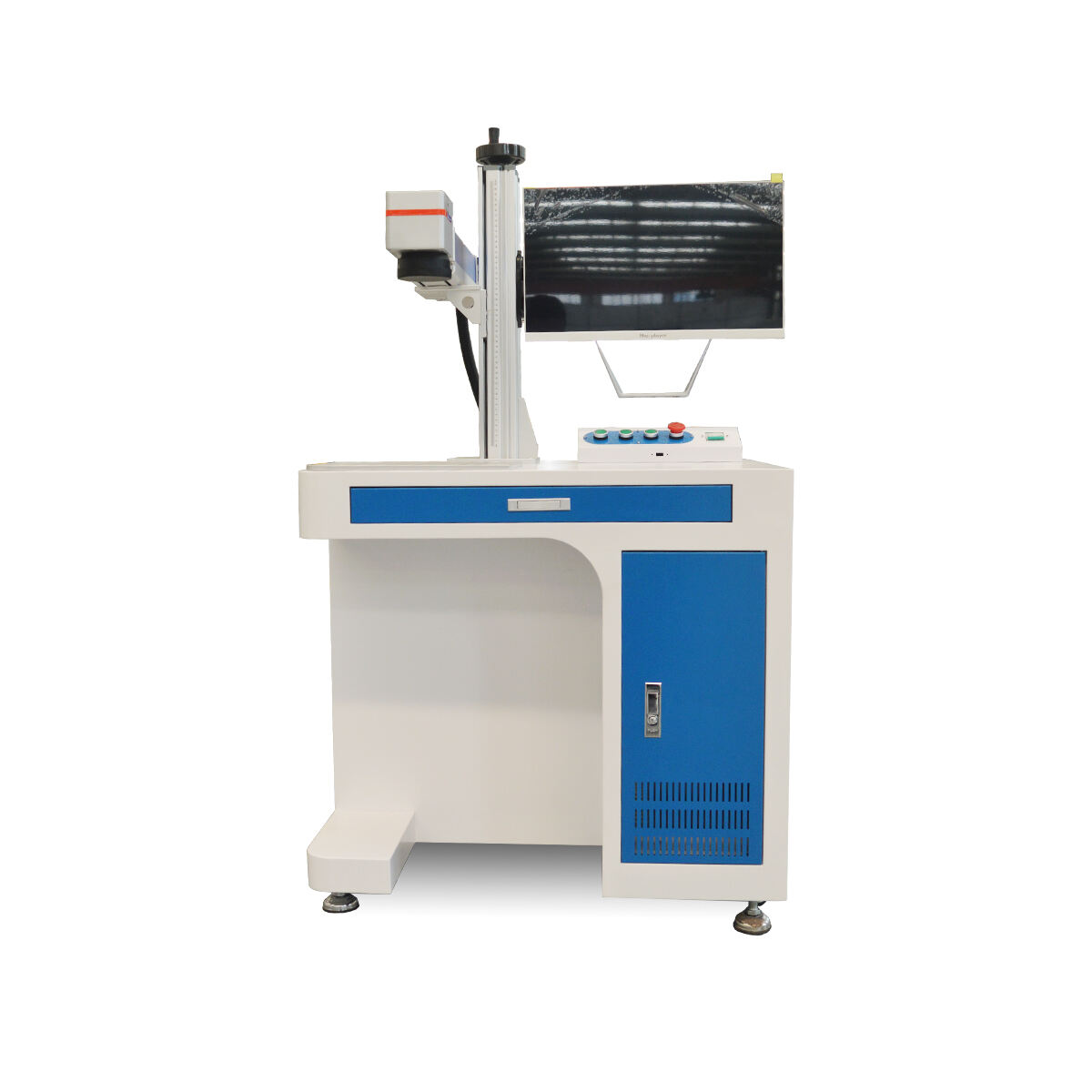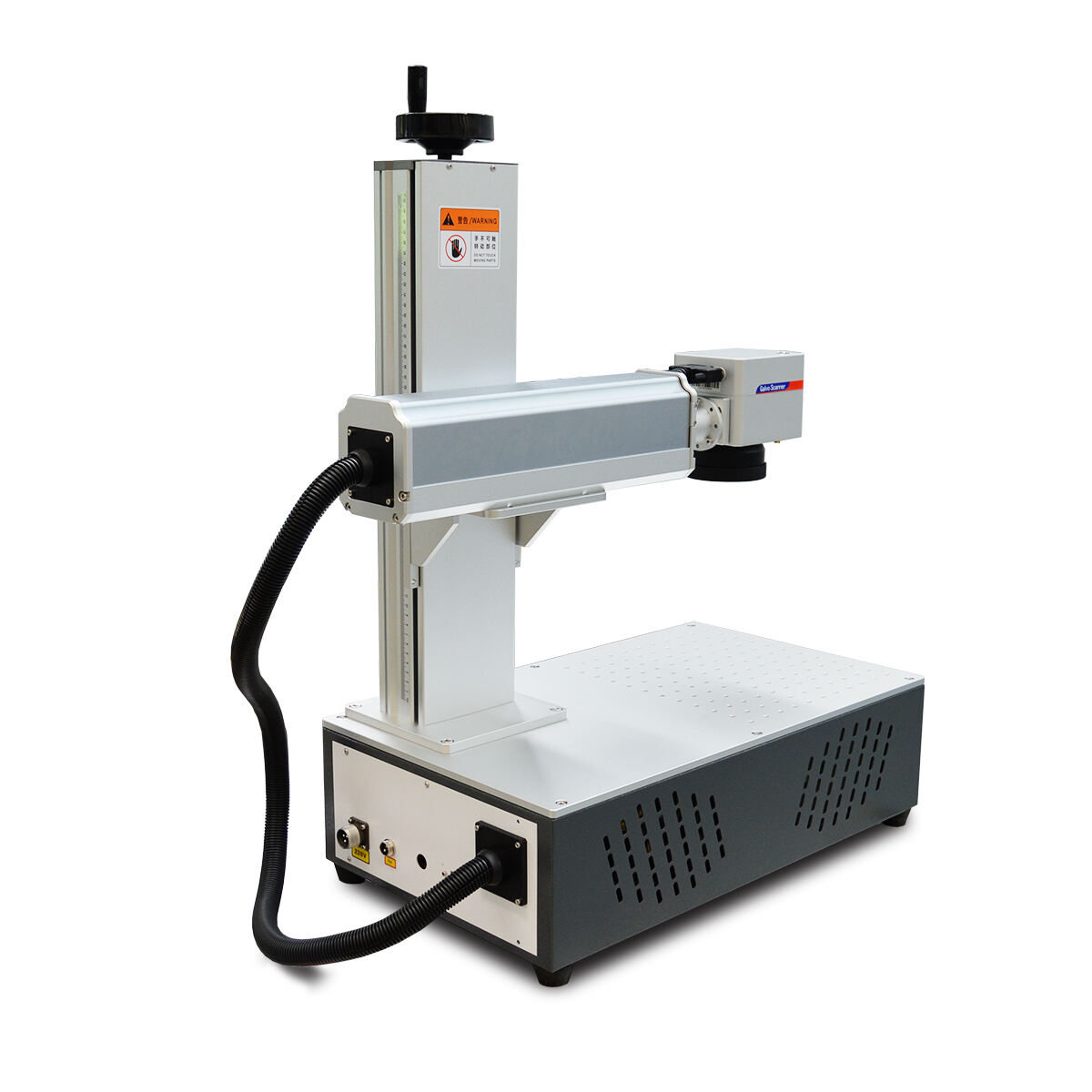The Impact of Laser Marking Machines on Industrial Quality Control
Understanding the Impact of Laser Marking Machines on Industrial Quality Control
Laser marking machines are advanced devices that utilize concentrated light beams to engrave, etch, or mark materials with a high degree of precision. These machines are essential in various industries, such as automotive, aerospace, and electronics, where permanent and accurate markings are crucial for identification and traceability. The functionality of laser marking machines is built on their ability to interact with the material's surface through processes like engraving, etching, or annealing, resulting in high-quality and long-lasting marks. Their versatility allows them to be used across different applications, from engraving logos and serial numbers to creating QR codes and intricate designs.
Quality control in industrial manufacturing is a vital process that ensures the reliability, safety, and compliance of products with industry regulations. Effective quality control processes help manufacturers maintain high standards and meet customer expectations, fostering brand trust and reducing liability. Laser marking machines contribute significantly to quality control by providing precise and permanent markings that facilitate accurate product tracking and authentication. This accuracy aids in preventing counterfeiting and ensures that products meet required standards.
Key Benefits of Laser Marking Machines in Quality Control
Laser marking machines offer unparalleled precision and accuracy in industrial applications, significantly enhancing product quality. Their ability to create detailed and consistent markings ensures minimal deviations in production, which is critical in maintaining stringent quality standards. This high level of precision is especially beneficial in industries where accurate information must be indelibly marked, such as in automotive and electronics, where even minor errors can lead to significant product defects.
Enhanced traceability is another key benefit of laser marking technology, particularly in sectors that require rigorous compliance procedures, such as pharmaceuticals and aerospace. By permanently engraving serial numbers or QR codes onto products, manufacturers can maintain comprehensive records. This traceability facilitates streamlined audits and product recalls, ensuring regulatory compliance and enhancing accountability throughout the supply chain.
Moreover, the adoption of laser marking machines reduces human error in quality control processes by automating tasks that were traditionally performed manually. This automation leads to a significant decrease in defects and enhances overall operational efficiency. Studies have shown that companies transitioning to laser technology experience a marked reduction in production errors and defects, aligning with the industry's move towards more reliable and efficient manufacturing techniques.
Comparing Laser Marking with Traditional Marking Methods
Laser marking offers several advantages over traditional marking methods, like ink-based techniques, including enhanced durability, permanence, and environmental benefits. Unlike ink markings, which can fade over time and are susceptible to abrasion, laser markings are permanent and resistant to wear. This makes them particularly beneficial in industries where long-lasting and resilient marks are essential. Moreover, laser marking eliminates the need for solvents and chemicals used in ink-based marking, thus offering a more environmentally friendly solution.
Case studies, particularly from the automotive industry, highlight the effectiveness of laser marking in enhancing efficiency and quality assurance. Automotive components often require precise and clear markings for identification and compliance with regulatory standards. Companies that have transitioned to laser marking have reported a significant reduction in defects and recalls. These benefits underscore why industries are increasingly adopting laser technology for their marking needs, moving away from traditional methods to ensure durability and precision in production processes.
Product Spotlight: Innovative Laser Marking Machines
Laser marking machines have revolutionized the industrial marking process, offering advanced solutions across various settings. For instance, the Cabinet Type Laser Marking Machine is designed with an all-fiber structure, ensuring high reliability and exceptional beam quality. Its integrated design allows for a larger marking range, making it ideal for continuous industrial operations. Key features include stable output power, quick marking speed, and precision, particularly beneficial in environments that demand high depth and smoothness.
For small businesses and custom applications, the Desktop Laser Marking Machine is a perfect fit due to its compact design. This machine's strength lies in its simplicity and ease of use, ensuring precision without the need for consumables. Despite its smaller size, it offers high marking efficiency and quality, making it suitable for various applications, including jewelry customization and circuit board marking.
On the other hand, the Portable Laser Marking Machine offers unmatched flexibility, particularly appealing for fieldwork and on-site marking. Its lightweight and compact features enable it to operate under diverse environmental conditions, using low power consumption. This adaptability makes it a practical tool for situations like metal part marking in remote areas or emergency engraving services.
Implementation of Laser Marking Technology in Industries
Laser marking technology is revolutionizing the automotive and aerospace industries by enhancing product identification and ensuring compliance with stringent regulations. In the automotive sector, laser marking is extensively used to mark vehicle parts with unique identification codes for tracking and quality assurance. This ensures that components meet industry standards and facilitates recalls if necessary. Similarly, in aerospace, parts are laser-marked to withstand extreme conditions, providing permanent identification essential for maintenance and safety checks.
In the medical device manufacturing industry, laser marking ensures traceability and compliance with regulatory standards. Medical devices require precise identification due to their critical nature in healthcare settings. Laser marking offers an indelible solution for marking tools and equipment with serial numbers, batch numbers, and expiration dates, helping prevent counterfeiting and ensuring patient safety. This technology plays a pivotal role in producing sterile medical instruments and devices by providing clean, hygienic markings without the need for additional chemicals.
The pharmaceutical industry faces stringent quality control and labeling requirements, where laser marking technology offers an effective solution. Pharmaceutical products often require clear and precise labeling for ingredients, dosage instructions, and regulatory information. Laser marking provides a non-contact method that ensures high precision and durability of the labels, even on small packaging. It efficiently meets the demands of the industry by enhancing the legibility and permanence of drug information, ensuring compliance with global regulations, and reducing the risk of counterfeit products entering the market.
Future Trends in Laser Marking for Quality Control
The future of laser marking technology in quality control is poised for significant advancements, particularly in improving marking capabilities. These advancements include developing higher-speed marking solutions and enhancing compatibility with a broader range of materials. This progress allows industries to maintain high production speeds without compromising mark quality, which is crucial for meeting increasing demand and ensuring product reliability. According to a study in the field of manufacturing, adopting robust laser technologies can significantly enhance efficiencies, aligning with global trends in industrial automation and effectiveness.
Another trend is the deeper integration of laser marking with automated quality control systems. Automation in manufacturing, through sophisticated software and integrated systems, provides streamlined processes and substantial cost reductions. This technological synergy between laser marking systems and automated controls ensures precise execution and monitoring, reducing the scope for human error and facilitating consistent quality standards across batches. Industries are increasingly favoring this integration to maintain competitive advantage and promote sustainable manufacturing practices.
By incorporating these advancements and trends, industries can elevate their operational strategies, ensuring their products meet stringent quality standards while optimizing production costs and resources. Laser marking stands to become an indispensable tool for manufacturers striving for perfection in product consistency and operational efficiency.





